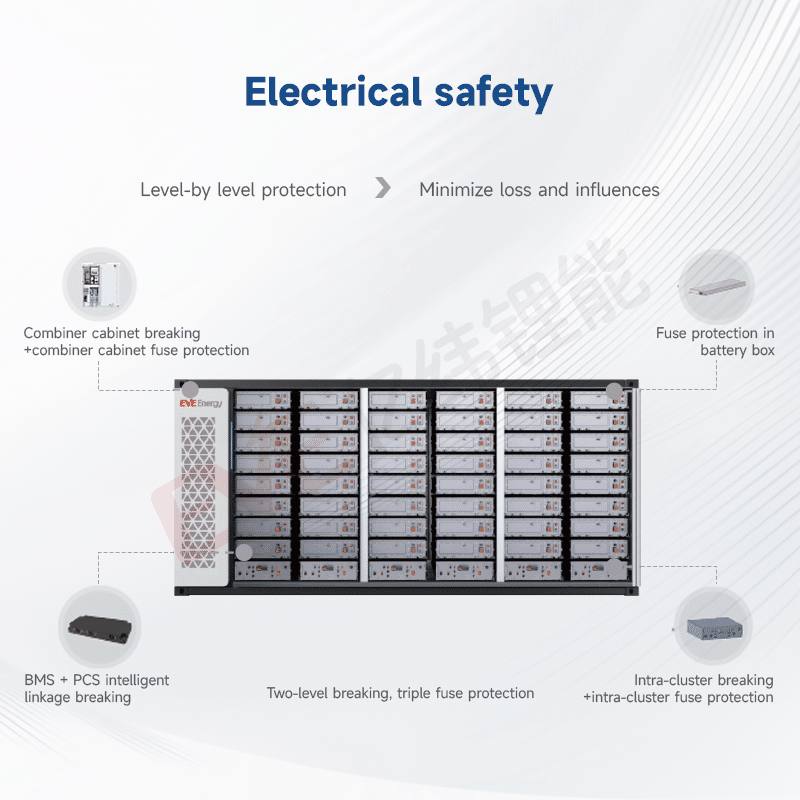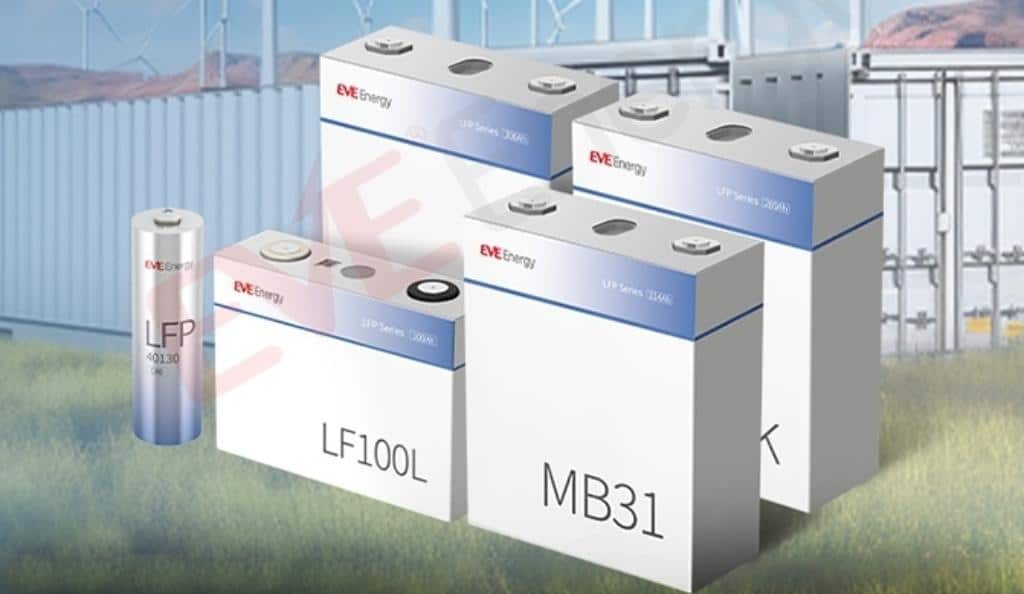Choosing the right battery is essential for building an efficient energy storage system. The battery for energy storage determines how well power is stored, released, and managed across different conditions. A suitable option improves reliability, efficiency, and long-term value, while a poor choice can lead to high costs and unstable performance.
This article helps readers understand how to select the best battery for energy storage needs by comparing major battery types, key performance factors, and proven solutions.
Major Battery Chemistries for Energy Storage
Some of the most common types of batteries for energy storage include:
- Lithium-ion (Li-ion) Batteries: The Modern Standard
Lithium-ion batteries dominate today’s energy storage systems because of their high energy density, long cycle life, and compact design.
They deliver strong performance for both residential and industrial applications, efficiently storing renewable energy for use during peak demand. Their fast-charging capability and stable efficiency make them the preferred choice for modern solar and grid-connected systems.
- Lead-Acid Batteries: The Cost-Effective Choice
Lead-acid batteries remain a practical option for users prioritizing affordability over performance. Although they have lower energy density and a shorter lifespan than lithium-ion models, their reliability and low upfront cost make them suitable for backup power and off-grid applications. Maintenance-free sealed variants have further improved their usability in smaller systems.
- Flow Batteries: The Long-Duration Specialist
Flow batteries store energy in liquid electrolytes, which makes it possible to scale energy and power capacities separately.
They are ideal for long-duration storage where systems must deliver consistent output for many hours. Their long cycle life and low degradation rate make them valuable for grid balancing and renewable integration projects.
- Emerging Technologies: The Next Frontier
New chemistries such as sodium-ion and solid-state batteries are attracting growing interest as the next generation of energy storage solutions.
Sodium-ion batteries offer improved safety and lower material costs, while solid-state designs promise higher energy density and enhanced thermal stability. These technologies are expected to complement or, in some cases, surpass existing options in the coming years.
Key Factors in Choosing the Best Battery
While choosing the battery for energy storage, here are the key factors to consider:
- Energy Density
Energy density determines how much power a battery for energy storage can store with respect to its size.
A higher energy density means more electricity can be stored in less space, which is essential for compact systems or applications with limited installation areas. Lithium-ion batteries lead in this category, offering efficient performance without large storage footprints.
- Cycle Life
Cycle life measures how many times a battery can charge and discharge before its capacity significantly drops. A long cycle life reduces replacement frequency and lowers long-term operating costs.
Flow and lithium-ion batteries both have good cycle life, while lithium-ion typically offers higher energy efficiency per cycle.
- Safety
A safe and stable battery for energy storage prevents overheating, short circuits, and potential fire risks. Modern lithium-ion batteries for energy storage and sodium-ion batteries are considered safer options because of their strong thermal and chemical stability under heavy use.
- Cost and Scalability
Lead-acid batteries remain affordable initially, while lithium-ion systems, though more expensive upfront, provide longer service life and lower maintenance. Scalability is also important, as modular systems allow easy capacity expansion as energy demands grow.
- Environmental Impact
Sustainability is now a key factor in battery selection. Eco-friendly materials, recyclability, and lower emissions throughout the production cycle help reduce environmental impact.
Companies developing new chemistries, such as sodium-ion or solid-state batteries, are placing greater focus on using abundant materials and minimizing waste.
Where to Get the Best Battery for Energy Storage
EVE Energy offers some of the most advanced energy storage systems on the market. The company’s prismatic LFP battery cell MB56 and its integrated EVE S556H201 Energy Storage System stand out for both performance and reliability. Here is a quick look at both of these solutions:
- MB56
The MB56 is a large-capacity 3.2V lithium iron phosphate cell designed for commercial, industrial, and utility-scale storage.
With a rated capacity of 628 Ah and an exceptional cycle life of up to 8,000 cycles, it delivers stable, long-term energy support for solar, wind, telecom, and residential applications. Its ability to operate efficiently across wide temperature ranges and sustain high charge and discharge rates makes it ideal for systems that require durability and consistent output.
At the system level, the EVE S556H201 combines these advanced cells into a complete 5MWh energy storage unit, designed for large solar and wind installations as well as base stations and grid applications.

It features a standard 20-foot containerized design, ensuring easy deployment and scalability. The system’s smart integration and high voltage stability provide efficient energy management, while its multi-level safety architecture, including fire protection, intelligent control, and triple fuse protection, enhances operational safety.
Built with precision and tested through hundreds of safety and performance checks, this solution offers a reliable path toward smarter and cleaner energy storage for both commercial and utility-scale use.
Wrapping Up
EVE Energy stands out for its deep expertise, large-scale manufacturing, and reliable product performance. With advanced technologies across consumer, power, and energy storage batteries, the company continues to deliver safe, efficient, and long-lasting energy solutions that are trusted worldwide.
If you are looking for the best batteries for energy storage systems, EVE Energy may have the right solutions for you. To learn more, contact EVE Energy for details.
